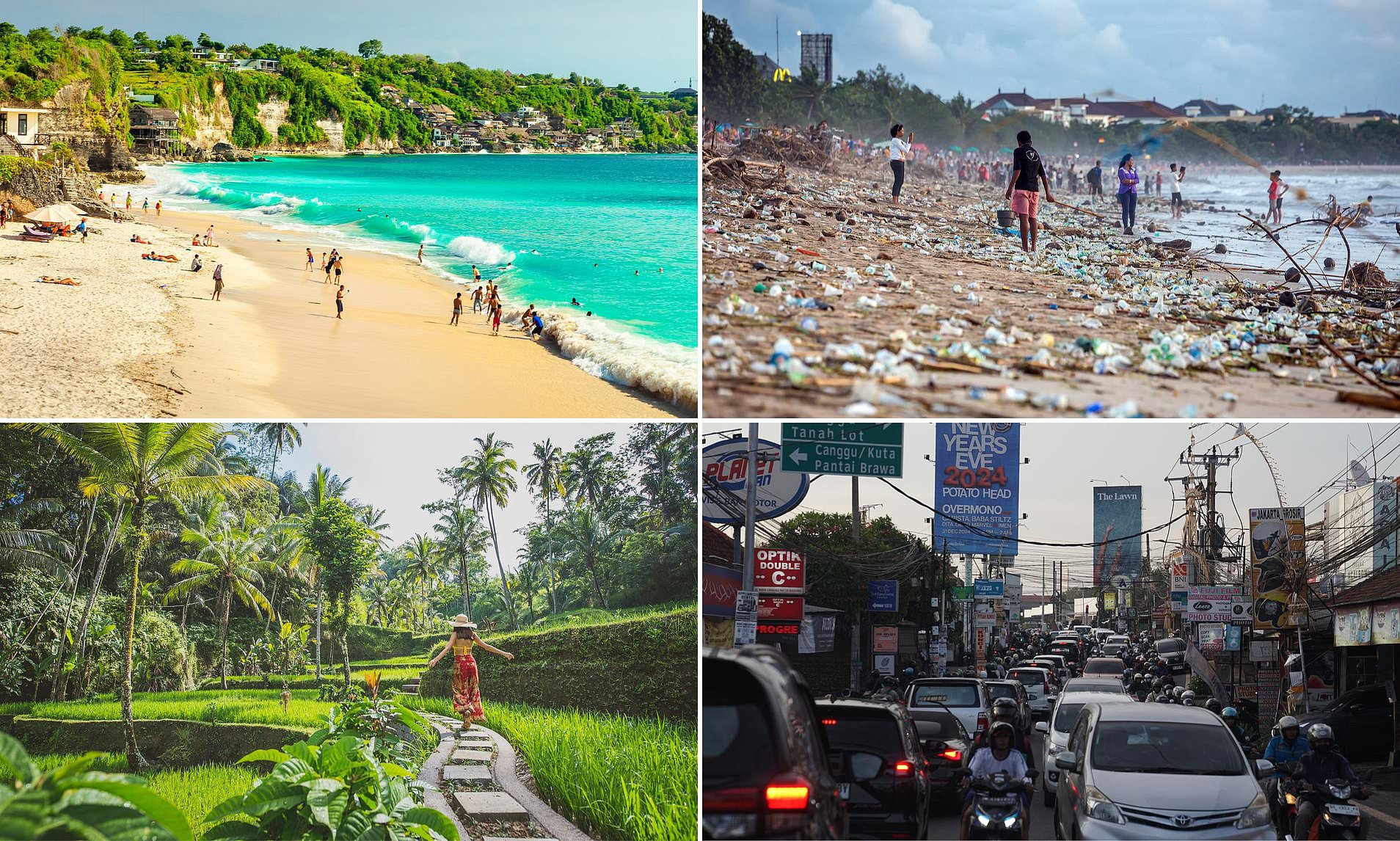
The Hidden Challenges of Bali: A Reality Check for Travelers
Bali, often celebrated as a tropical paradise with its lush jungles, serene beaches, and spiritual roots, has long been a dream destination for many. However, recent experiences from travelers suggest that the island is facing significant challenges that are overshadowing its beauty. From overtourism to pollution, infrastructure issues, and aggressive commercialization, the reality of visiting Bali is far more complex than the glossy images shared online.
Overtourism: A Growing Concern
One of the most pressing issues reported by visitors is overtourism. With over 2.6 million international tourists in the first five months of 2025, the island is experiencing a surge in visitors that has led to overcrowded spaces and a loss of authenticity. Popular spots like Ubud and Seminyak, once known for their cultural richness and laid-back vibe, are now filled with selfie sticks, scooters, and chaotic crowds.
Travelers have described feeling overwhelmed by the sheer number of people, with even quiet temples and nature trails becoming crowded. Fitness and travel influencer @resurgent_harry noted that Bali is "completely overcrowded," while a TropEcoTravel contributor lamented that the island's true essence has been lost under the weight of tourism and plastic waste.
In 2024, Fodors Magazine highlighted Bali as a top destination to avoid, pointing out that some of its most popular spots are struggling under the pressure of mass tourism.
Pollution: A Threat to Natural Beauty
Pollution is another major concern for many visitors. Reports of garbage near natural attractions such as waterfalls and beaches have become increasingly common. Plastic waste, especially during the rainy season, is a growing problem, with trash washing up on shores in large quantities.
@resurgent_harry shared a video showing the extent of the issue, stating that "you can't go for a run, there is trash everywhere." Travel blogger Dale Philip was shocked to find Pengempu waterfall covered in litter after seeing glamorous photos of it online. Similarly, travel influencer Joshwa documented scenes of abandoned beanbags, decrepit buildings, and piles of plastic bottles along the beach.
Infrastructure and Traffic: A Daily Struggle
The island’s narrow roads and limited public transport have contributed to severe traffic congestion, making travel frustrating for both locals and tourists. Harry Mackarness, who spent two months in Bali, described his experience as "deeply depressing" and said he would never return. He criticized the island for being overwhelmed by mass tourism and plagued by gridlocked roads and rundown accommodations.
Jamie, a travel blogger from Durham, noted that Bali cannot cope with over 4 million visitors a year. In Ubud, he found that every road was jammed with traffic, making it difficult to move around without walking through polluted air. Will Hatton, a World Nomads contributor, described Bali’s traffic as "complete chaos" and warned of frequent road accidents and unsafe driving practices.
Tourist Traps and Touts: A Costly Experience
Over-commercialization has led to aggressive touting and inflated prices near temples, markets, and popular nature spots. Travelers report that they are constantly approached by merchants and taxi drivers, making it hard to enjoy a peaceful visit. Jamie shared his frustration with the Tegalalang Rice Terraces, where he had to pay multiple fees just to access the area. He also advised travelers to hire a private driver rather than rely on unreliable public transport or taxis controlled by local "mafia."
Another visitor described Uluwatu Temple as a "huge tourist trap," warning that visitors must pay at the gate to enter and face uncomfortable conditions while exploring the area.
Rowdy Tourists and Influencers: A Changing Atmosphere
The rise of influencers has also changed the dynamics of Bali. Many travelers feel that the constant filming and performative spirituality have diluted the island’s appeal. Influencers often present an idealized version of Bali, which can create unrealistic expectations for other visitors.
Zoe Rae, sister of Mollie Mae Hague, faced backlash after leaving Bali just 48 hours after arriving because it did not meet her expectations. Meanwhile, loud parties and disrespectful behavior from intoxicated tourists have left a negative impression on many visitors. Jamie, in his blog, expressed surprise at Bali’s party scene, noting that Seminyak, despite being a more upscale resort, had become similar to other tourist hotspots like Magaluf.
As Bali continues to attract millions of visitors each year, the challenges it faces are becoming increasingly apparent. While the island still offers breathtaking landscapes and rich cultural experiences, the growing issues of overtourism, pollution, and commercialization are reshaping the traveler’s experience.
